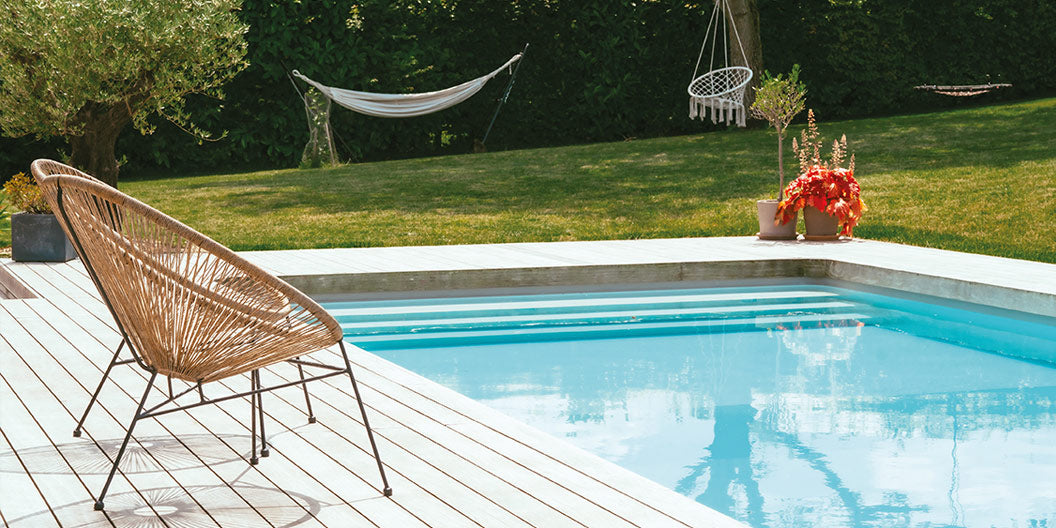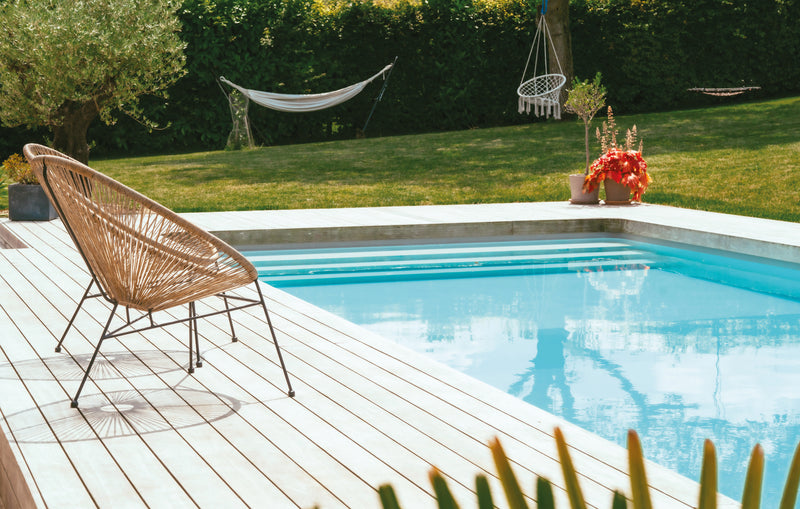- Welcome
- Desjoyaux advice
- Entretien et nettoyage
-
When to add chlorine to the pool?
When to add chlorine to the pool?
Posté leDaily pool maintenance requires the use of chlorine, but when should you add chlorine to your pool?

What is chlorine?
Chlorine is a chemical cleaning product that eliminates all organisms that cause deterioration in the quality of swimming pool water : algae, fungi and bacteria in particular.
Chlorine therefore helps to purify the pool water by sterilizing it and making it sterilizing (it is one of the rare water treatment products with this persistence). This way, you can swim in clear and healthy water.
Depending on the size of your pool and its water volume, the chlorine dosage varies. On average, the chlorine level should be between 1 and 1.5 mg/L; while respecting the pH of the water, which should ideally be between 7 and 7.2 for total chlorine effectiveness.
Chlorine can be found in different forms : in tablet/powder form (known as “shock chlorine”), in tablets, sticks or liquid.
Why use chlorine?
The use of chlorine comes down to two major advantages:
-its ease of use: to be placed in the white skimmer basket of your Desjoyaux filtration unit or simply via a dosing device to be placed in your pool.
-its effectiveness.
Caution: never throw chlorine tablets into the bottom of the pool as this will damage the liner.
When to use chlorine
We distinguish between basic treatment or slow treatment of the swimming pool, which consists of adding chlorine weekly so as to always have the recommended chlorine level (between 1 and 1.5 mmg/l). This weekly treatment can be easily done with chlorine tablets or sticks.
Depending on the manufacturer, the dosage may vary, so be sure to follow these instructions carefully.
In addition to this regular use, it will certainly be necessary to carry out a shock treatment (when algae proliferate in the pool following heavy use of the pool, stormy weather, etc.). Shock chlorination is carried out with chlorine in the form of tablets, powder/granules).
When to perform chlorine shock treatment?
Shock treatment is therefore suitable for occasional use but must also be carried out at key moments in the life of the pool:
– after the first filling,
– after emptying the pool,
– after wintering,
– after bad weather,
– after heavy use of the pool,
– after a bacterial infection,
– before starting an automatic treatment of the salt electrolysis type,
– at the end of the season.

